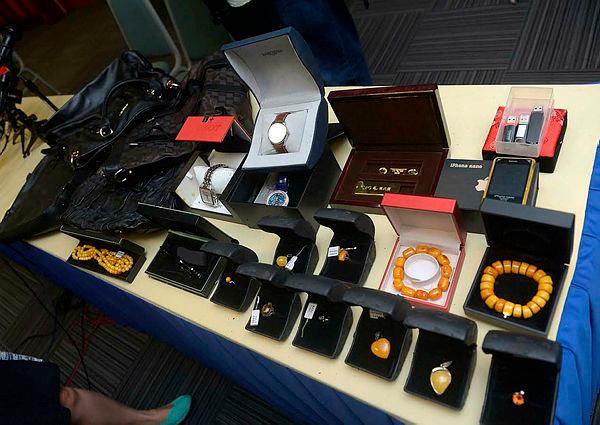PETALING JAYA: The Domestic Trade and Cost of Living Ministry is cracking down on the counterfeit goods market in the country, said to be worth some RM300 billion per annum.
Its enforcement division director-general Datuk Azman Adam told theSun that between January and November last year, RM14.9 million worth of counterfeit goods were seized from hotspots in Jalan Petaling, Jalan Chow Kit and Jalan Kenanga in Kuala Lumpur.
“We have also blocked a total of 1,249 websites and removed 729 social media accounts with postings containing counterfeit products throughout 2023.
“We are determined to act against those selling counterfeit products as Malaysia currently ranks number three in Asia for sale of counterfeit goods. This damages the country’s reputation.”
Azman said the ministry is investigating 394 cases under the Trademarks Act 2019 for copyright infringement, adding that in July last year, 2,505 high-quality fake handbags, wallets, bracelets and rings worth RM250,000 were seized.
“They were seized from nine premises in Petaling Street, with some of the counterfeit items being sold for between RM400 and RM4,000 each.
“There is no denying that Jalan Petaling is infamous for selling counterfeit goods. So, we have taken various efforts and approaches to strengthen the protection of intellectual property rights.
“The widespread sale of counterfeit and pirated goods in the market is not only a domestic trade issue but also a global problem.”
He said the growth of more advanced technologies and social media facilitated the operations of sellers engaged in the counterfeit goods trade on online platforms.
Azman also said the convenience and accessibility offered by digital channels have significantly contributed to the proliferation of illegal practices and enabled sellers to reach a broader audience.
“When the ministry receives a complaint from a trademark owner, we immediately notify the online platform through the Malaysian Communication and Multimedia Commission.
“A notice is then issued to take down the offending content from the platform,” he said, adding that sellers of counterfeit goods earn substantial profits as the items can be produced at a significantly lower price compared to authentic ones.
On factors contributing to Malaysia becoming a hub for counterfeit products, Azman said one is the country’s position as a hub for international trade and commerce, that makes Malaysia a convenient location for the production and distribution of counterfeit goods.
“Globalisation facilitates the movement of counterfeit products across borders. This can make it challenging to enforce intellectual property rights, especially when dealing with cross-border trade and online transactions.”
Azman said a common trend has emerged in which sellers specifically target women in their efforts to sell counterfeit products, especially involving luxury brands.
“There might be a significant demand for designer handbags driven by societal expectations or personal desires.
“Some individuals may seek to own prestigious brands but are unable or unwilling to pay the high prices for authentic items. This creates the market for counterfeit alternatives.”
Offences linked to counterfeit goods are under the Trademarks Act 2019 and violators may be subject to fines of up to RM15,000 per item.









